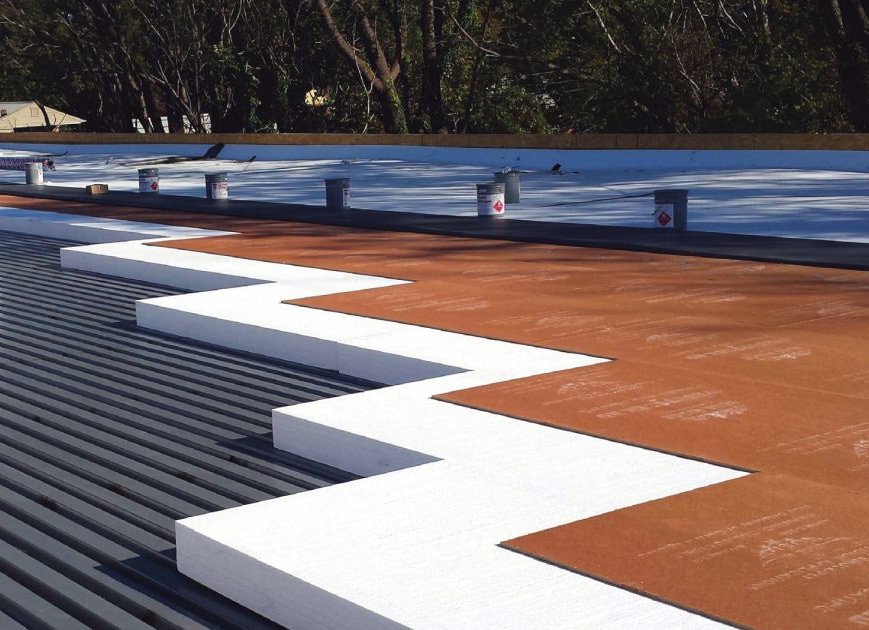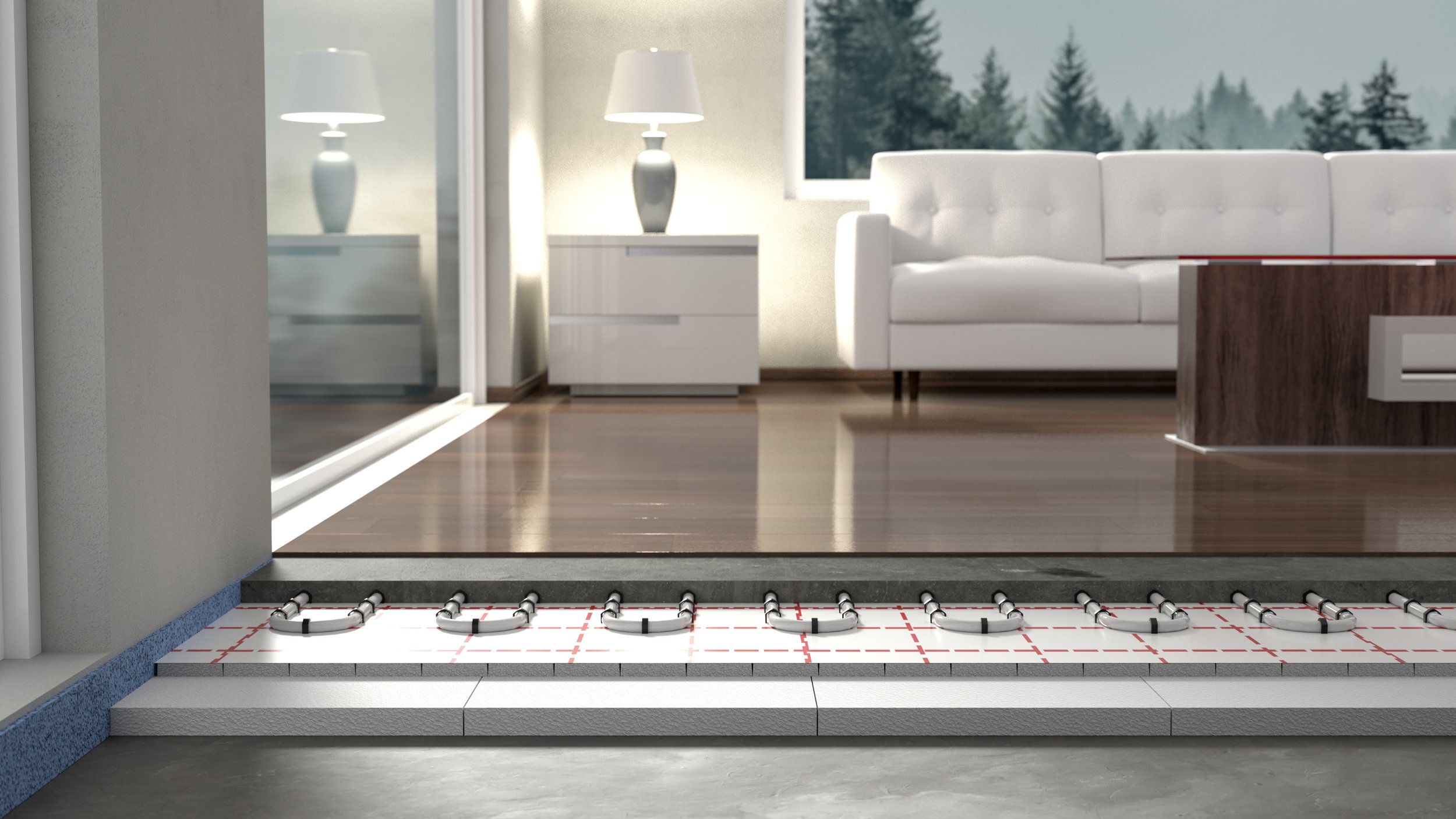
Commercial & Residential Applications
EPS insulation delivers consistent R-value over the life of the product.
From the rooftop to the foundation, in businesses, schools and family homes, EPS is an ideal insulation choice with a history of proven performance. Readily available throughout the U.S. and Canada in a range of densities to meet building and energy codes as well as LEED requirements, EPS insulation delivers measurable advantages in energy efficiency, indoor environmental quality and durability. Its expert engineering allows professionals to create the most comfortable environment without compromising design.
EPS Roofing
EPS insulation is the solution of choice for new and re-roofing projects, delivering moisture protection and thermal stability that contributes to operational savings. Sustainable EPS roofing insulation is available in tapered and flat panels and in a variety of slopes ideal for use in ballasted, mechanically fastened and fully adhered roof assemblies, and under both membrane and built-up coverings.
EPS Below Grade
Using EPS insulation across below-grade applications is a proven way to help reduce a structure’s total energy loss and protect from moisture. EPS’ resistance to compressive stresses can align with foundation load requirements, allowing builders to satisfy below-grade insulation requirements without overengineering, leading to material savings.
EPS Floors, Walls & Ceilings
Sheathing is one of the most widely used applications for EPS insulation in residential and commercial construction. Compatible with masonry and wood and steel framing, EPS prevents thermal bridging, controls moisture and prevents air leaks. Since its R-value does not deteriorate with time, its efficiency is the same on the first day of installation as its last day of use.
1. Cavity Wall - EPS insulation can significantly improve the energy performance of residential wall systems.
2. Radiant Floor Heating - When used as part of a radiant floor heating system, EPS foam works as a thermal break, ensuring uniform and efficient heat distribution.
3. Exterior Sheathing - EPS-insulated vinyl siding offers strength, durability, curb appeal and state-of-the-art energy efficiency.
Cold Storage
EPS insulation is ideal for cold storage structures due to its stable thermal performance, compressive strength and moisture resistance. Thermal efficiency is essential for decreasing the load on refrigeration equipment and reducing energy use. Compressive strength is also important, as insulation in cold storage floor applications needs to withstand the weight of material handling equipment, stored goods in concentrated areas, stress from racking assemblies and the weight of the building itself. The moisture-resistant properties of EPS insulation are particularly important for cold storage applications as there tends to be more moisture and condensation in these interior spaces.





